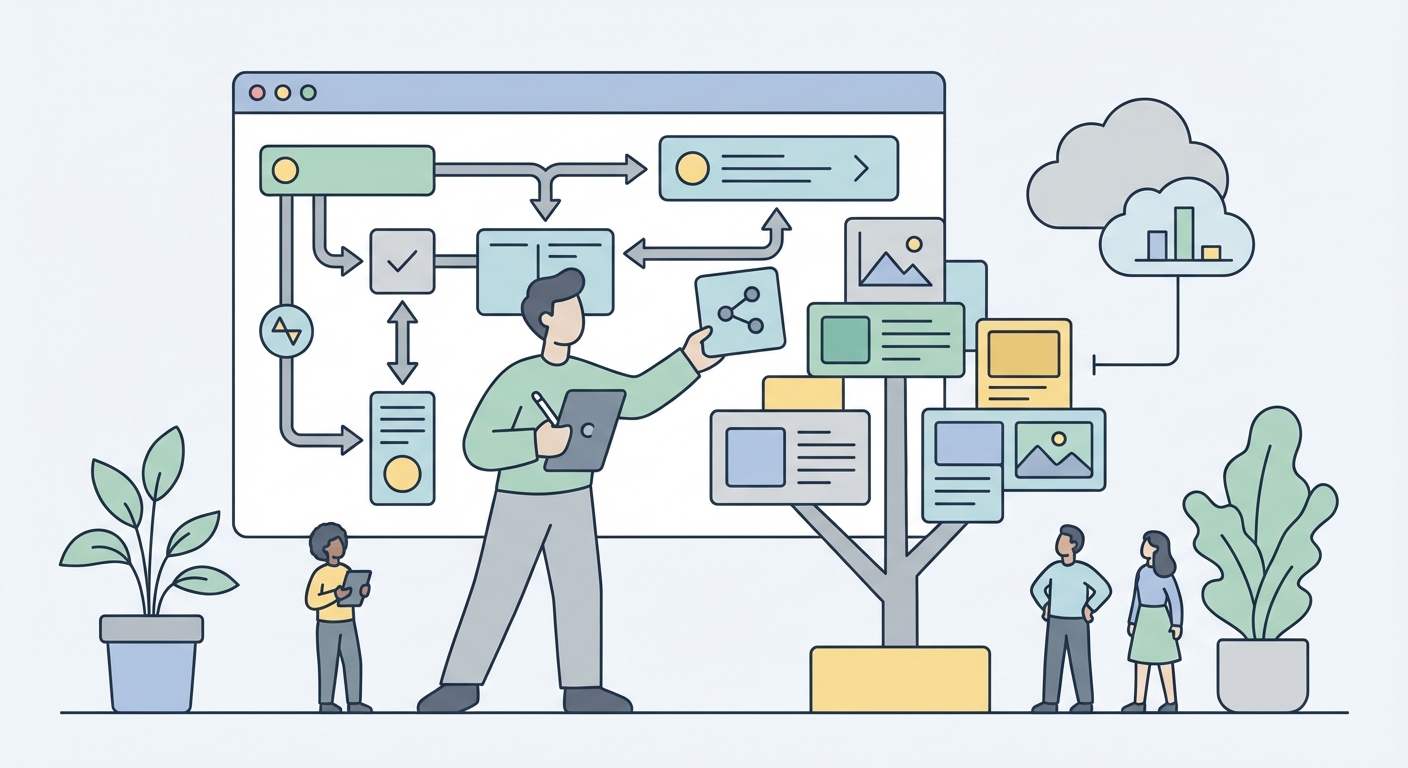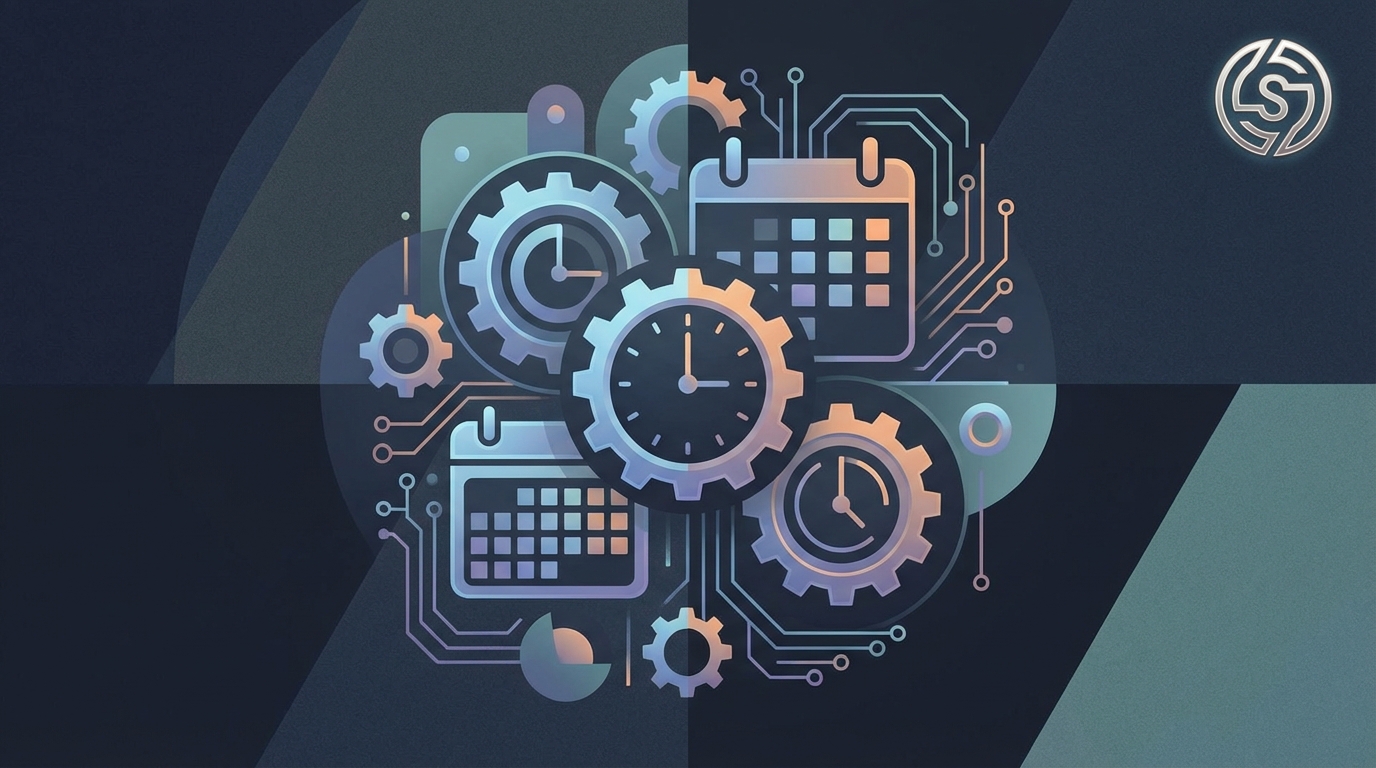Revolutionizing Social Media: How Multi-Agent Systems are Transforming Content Creation and Management
Understanding Multi-Agent Systems (MAS) and Their Potential
Imagine a world where social media content creates itself, adapting to trends and engaging audiences without constant human intervention. Multi-Agent Systems (MAS) are making this vision a reality, and it's pretty wild to think about.
Multi-Agent Systems (MAS) are basically systems made up of multiple autonomous agents that work together to get stuff done, whether it's for themselves or for the group. Think of it like a digital team, each with its own job but all aiming for the same big picture.
These agents have some cool characteristics:
- Autonomy: Each agent can pretty much do its own thing.
- Social Ability: They can actually talk to each other, which is key.
- Reactivity: They notice when things change and react.
- Pro-activeness: They don't just wait around; they take the initiative.
Instead of one big boss controlling everything, MAS spread the control out. This makes them way more flexible and able to roll with the punches.
So, why is this good for social media? MAS offer some serious advantages:
- Enhanced Efficiency: They can totally automate boring stuff like scheduling posts and figuring out hashtags.
- Improved Decision-Making: By looking at data from all sorts of places, they can figure out the best way to do things.
- Increased Scalability: Juggling a bunch of social media accounts? MAS can handle it.
- Greater Adaptability: They can jump on new trends or react to what people are saying in real-time.
These characteristics and advantages directly contribute to that self-generating, trend-adapting content vision. For example, an agent might notice a trending topic (reactivity), then collaborate with another agent to brainstorm relevant content ideas (social ability), and then autonomously draft and schedule that content (autonomy and pro-activeness). This whole process can happen super fast, way faster than a human could manage.
As ai continues to evolve, MAS represents an important approach toward more dynamic, scalable, and collaborative systems.
In the next section, we'll dive deeper into how MAS actually work and their potential for social media.
Current Limitations of LLMs in Social Media and the Rise of MAS
Are you frustrated with the limitations of Large Language Models (LLMs) for social media management? Multi-Agent Systems (MAS) offer a promising alternative by overcoming these constraints.
LLMs have been pretty amazing for a lot of things, but they've got some serious blind spots when it comes to social media.
- Lack of Real-Time Data Access: LLMs are kinda stuck in the past. They rely on their training data, which means they don't know about the latest trends or news. (A Survey on Large Language Models with some Insights ...) So, if there's a sudden sale or a big announcement, an LLM might be totally clueless.
- Limited Actionable Capabilities: LLMs are mostly talk. They can write stuff, but they can't actually do things. (How to Modern AI tools use LLMs to create actions? - Reddit) An LLM can draft a post, sure, but it can't schedule it or reply to comments. In finance, it could analyze market vibes but not actually make a trade.
- Difficulty with Complex, Interdependent Tasks: LLMs often struggle to juggle multiple things at once. Running a big marketing campaign across different social networks needs coordination for content, scheduling, and analytics – something LLMs usually can't handle well.
Agent-based systems, on the other hand, have some serious advantages over LLMs, especially for social media.
- Integration with External Systems: Agents can actually connect to other systems, databases, and live data feeds. SmythOS is a good example of how MAS can hook into social media platforms, letting agents grab real-time data for trend spotting or customer service. This means agents can do things like monitor brand mentions and immediately respond, or even pull live product availability for a customer inquiry.
- Action-Driven Applications: Agents can do things. They can book appointments, pull live data, and automate tasks like scheduling posts, tweaking ad budgets, or responding to customer questions. This is a huge step up from just generating text.
- Dynamic Interaction: Agents can interact with the real world and adapt as things change. According to Primotly, MAS agents analyze data, learn from interactions, and make decisions on the fly. For instance, an agent could be tasked with monitoring social media for any mentions of your brand and then automatically drafting a polite response or flagging it for human review.
Agent-based systems can integrate with external systems, enabling them to perform actions and adapt to changing conditions, unlike LLMs.
In the next section, we'll explore the specific applications of MAS in social media content creation.
Use Cases: MAS Applications in Social Media Management
Did you know that ai can now create social media content that's more engaging than what most humans produce? Multi-Agent Systems (MAS) are revolutionizing social media management.
MAS applications offer a dynamic approach to content creation, audience interaction, and data analysis. Let's explore how MAS transforms social media strategies.
One powerful application of MAS lies in ai-powered content generation. Instead of relying solely on human creativity, MAS can automatically create engaging social media posts, captions, and even articles.
- AI-powered content generation: MAS can analyze trending topics, user preferences, and platform-specific guidelines to produce relevant content. For example, they can understand things like character limits on Twitter, optimal image sizes for Instagram, or even what kind of content is generally allowed on a platform, and then generate content that fits. In retail, this could mean generating compelling product descriptions or crafting attention-grabbing ad copy.
- Intelligent content curation: MAS can identify and share relevant content from various sources, saving time and ensuring a consistent flow of valuable information for your audience. A healthcare organization could use MAS to curate the latest medical research and share it with their followers.
- Personalized content recommendations: MAS can tailor content to specific audience segments, increasing engagement and driving conversions. For example, a financial institution could use MAS to provide personalized investment advice to different customer groups.
MAS can also automate audience engagement and community management tasks. This helps foster stronger relationships with your followers.
- Automated response to comments and messages: MAS can provide instant support and address customer inquiries, freeing up human agents to handle more complex issues. In e-commerce, this could mean automatically answering questions about shipping times or return policies.
- Sentiment analysis: MAS can monitor brand sentiment and identify potential crises, allowing you to respond proactively. This is crucial for any industry, as a negative comment can spread very fast.
- Proactive community building: MAS can engage with influencers and foster online communities, expanding your reach and building brand loyalty. Consider a fashion brand using MAS to identify and collaborate with relevant fashion bloggers and influencers.
MAS provides real-time performance tracking, automated report generation, and predictive analytics, empowering data-driven decision-making.
- Real-time performance tracking: MAS can monitor key metrics like engagement, reach, and conversions, providing immediate insights into the success of your social media campaigns. This allows you to make timely adjustments and optimize your strategy.
- Automated report generation: MAS can create comprehensive reports on social media performance, saving time and providing a clear overview of your results. These reports can be customized to track specific metrics and goals.
- Predictive analytics: MAS can forecast future trends and optimize your social media strategy, helping you stay ahead of the curve. This could involve predicting the popularity of certain hashtags or identifying emerging audience interests.
As ai continues to advance, MAS will play an increasingly important role in social media management. In the next section, we'll look at real-world examples of industries benefiting from MAS in social media.
Real-World Examples: Industries Benefiting from MAS in Social Media
Imagine a world where ai agents are your personal social media strategists, crafting content and engaging audiences on autopilot. Multi-Agent Systems (MAS) are rapidly transforming social media across various industries, offering unprecedented efficiency and personalization.
MAS can revolutionize e-commerce social media strategies.
- AI agents analyzing customer data enables tailored product recommendations. For instance, an agent can analyze a customer's past purchases and browsing history to suggest relevant products in targeted social media ads.
- Automated chatbots handling customer inquiries provide instant support and resolve issues. This ensures customers receive prompt and helpful responses, enhancing their overall experience and freeing up human agents for more complex issues.
- Real-time monitoring of customer sentiment helps improve customer satisfaction. MAS can analyze social media comments and messages to identify negative feedback, allowing businesses to address concerns proactively and improve their brand image.
Do you want to create travel content that captivates your audience? MAS can help.
- AI agents generating travel guides and itineraries based on user preferences can provide personalized recommendations. Imagine an agent that creates custom itineraries based on a user's interests, budget, and travel dates, then shares them on social media.
- Automated social media campaigns promoting travel destinations can increase brand awareness and engagement. MAS can create and schedule social media posts showcasing destinations, highlighting unique experiences, and targeting specific demographics.
- Real-time monitoring of travel trends helps optimize marketing efforts. By tracking trending destinations and travel-related conversations, MAS can help businesses adjust their marketing strategies to capitalize on current interests.
Multi-agent systems can play a crucial role in healthcare and public health initiatives.
- Using multi-agent systems to track disease outbreaks and disseminate information can help control the spread of diseases. MAS can monitor social media for mentions of symptoms and potential outbreaks, alerting health officials and disseminating information to the public.
- AI-powered chatbots providing personalized health advice and support can improve patient engagement. This can involve chatbots that answer questions about medications, provide appointment reminders, or offer mental health support.
- Automated social media campaigns promoting healthy behaviors can encourage people to adopt healthier lifestyles. MAS can create and schedule social media posts promoting exercise, healthy eating, and preventive care, targeting specific demographics with tailored messaging.
MAS are revolutionizing social media management across diverse industries. In the next section, we'll explore how MAS can overcome technical challenges in implementation.
Overcoming Technical Challenges in MAS Implementation
Integrating Multi-Agent Systems (MAS) into social media platforms can feel like navigating a maze, but the rewards are well worth the effort. What are the main technical hurdles and how can you overcome them?
One of the biggest challenges is getting MAS to play nicely with existing social media platforms. These platforms often have complex, proprietary architectures.
- Utilizing standardized APIs and protocols to create modular interfaces is key. This allows for more flexible and less disruptive integrations.
- Implementing middleware layers to handle data translation and communication is essential. This acts as a bridge between the MAS and the social media platform.
- Developing custom adapters for popular social networks can streamline the integration process. This ensures that the MAS can effectively interact with each platform's unique features.
Researchers at the University of Southampton developed a middleware framework called FlexiNet that facilitates seamless integration of MAS with various social media platforms through standardized interfaces.
Making sure all the agents within the MAS can communicate effectively is another hurdle. Different agents might use different data formats or communication protocols.
- Adopting common data exchange formats like JSON or XML allows agents to share information easily. This ensures that all agents can understand the data being exchanged.
- Implementing semantic technologies enables a shared understanding between agents. This helps agents interpret the meaning behind the data, not just the data itself. For example, semantic technologies like ontologies or knowledge graphs can help agents understand that "NYC" and "New York City" refer to the same location, or that a "like" on a post signifies positive sentiment. This shared understanding is crucial for coherent collaboration.
- Creating standardized agent communication languages tailored for social interactions is crucial. This ensures that agents can effectively coordinate their actions and achieve common goals.
When you have multiple autonomous agents working together, disagreements are bound to happen. Effective conflict resolution is essential for maintaining system stability.
- Implementing centralized coordination mechanisms to arbitrate between agents can help resolve conflicts. This provides a neutral party to make decisions when agents disagree.
- Using game theory and negotiation protocols to resolve conflicts encourages cooperation. This allows agents to find mutually beneficial solutions.
- Developing learning algorithms allows agents to adapt their behaviors and avoid recurring conflicts. This helps agents learn from past mistakes and improve their interactions over time.
Addressing these technical challenges is crucial for unlocking the full potential of MAS in social media management. In the next section, we'll explore future trends and the evolving landscape of MAS in social media.
Future Trends and the Evolving Landscape of MAS in Social Media
The future of social media is not just about algorithms; it's about adaptable intelligence. Multi-Agent Systems (MAS) are poised to revolutionize social media by continuously learning and adjusting to the dynamic digital landscape.
Imagine social media systems that evolve with every interaction. Adaptive MAS use advanced machine learning to constantly refine their decision-making. This agility is crucial because social media trends shift rapidly.
- These systems leverage real-time data to understand user behavior.
- They can adjust content strategies based on current trends.
- Adaptive MAS also personalize user experiences to maximize engagement.
Complex social network challenges require coordinated solutions. Collective ai behavior harnesses swarm intelligence to tackle these issues. This approach enables real-time identification and mitigation of misinformation.
- ai agents work together to verify content authenticity.
- They can detect and flag suspicious accounts spreading false information.
- This coordinated effort enhances the overall integrity of social networks.
Forecasting trends and behaviors is essential for effective social media strategies. Predictive analytics, powered by MAS, simulates interactions between users, content, and external factors. This capability revolutionizes targeted advertising and public health interventions on social platforms.
- MAS can predict the virality of content based on user engagement patterns.
- They can also identify emerging health crises by monitoring social media conversations.
- This exceptional accuracy empowers organizations to make informed decisions.
SmythOS offers robust built-in monitoring capabilities, providing real-time insights into agent behavior, performance metrics, and system-wide interactions.
As ai continues to evolve, MAS will play an increasingly central role in shaping the social networks of tomorrow. The next section explores the ethical considerations surrounding the use of MAS in social media.
Power Up your Social Media Game with Social9 AI
Social9 ai empowers you to revolutionize your social media strategy. With ai, unlock your content's full potential.
- ai generates engaging posts and captions, much like the autonomous agents we've discussed, working to create relevant and timely content.
- Smart hashtag suggestions boost visibility, a task that MAS agents can efficiently handle.
- Get 24/7 support and customizable templates, features that can be powered by agent-like capabilities for consistent and responsive service.
Elevate your social media game and captivate your audience.





